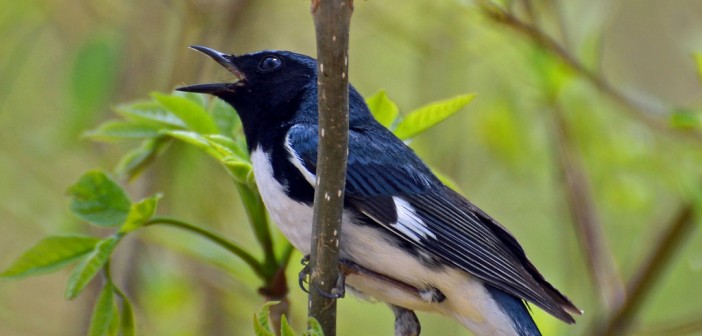(Photo credit: Black Throated Blue Warbler by Rodney Campbell, used under CC BY 2.0)
This post originally appeared on the World Animal Net Blog.
Legal advancements for animals can often come at a painfully slow pace. But recently, we couldn’t help but notice how many wins and promising animal law-related news items kept coming in. Here are a few of the highlights:
Netherlands Fur Farming Ban
What happened?
On Nov. 10, a Dutch court ruled on the side of six million farmed minks in the Netherlands, reintroducing a ban on mink farming for fur. According to Bont voor Dieren, the Dutch organization who had been lobbying strongly for this ban, the Netherlands is the third largest producer of mink fur in the world behind Denmark and China. The ban initially faced hurdles when The Hague ruled last year that it would have a serious financial impact on fur farmers. In last week’s appeal decision, the ban was reinstated, and Dutch mink farming will come to an end in 2024.
Why was it significant?
In many instances, when they are fortunate enough to be considered in the law, animals’ inherent interests take a back seat to economic interests. Here, the court is essentially stating that the welfare of millions of mink is more important than the monetary value gained from harming them. We couldn’t agree more.
Canadian Supreme Court Hears Animal Case
What happened?
Canada’s Supreme Court heard arguments from an animal advocacy organization on an animal abuse case last week, stemming from an earlier overturned conviction by the British Columbia Court of Appeal. Though the facts of the case center on a particular sexual act performed on an animal, the ultimate question facing the country’s highest court is whether all forms of sexual activity against an animal constitute bestiality, which is illegal in Canada.
Why was it significant?
As the Executive Director of Animal Justice, who was granted intervener status in the case put it on the day of the arguments,
“Today’s appeal was a landmark moment for animal law in Canada. It’s the first time the country’s top court will consider any legislation protecting an animal from harmful conduct,” said Camille Labchuk, Executive Director of Animal Justice. “Animal Justice was there today to represent the perspective of countless animals who have no voices of their own.”
Janine Benedet, a law professor at the University of British Columbia, also hopes for a “more modern interpretation of the bestiality offence” as the law has done with other sexual offences in previous years.
Experts Meet to Discuss the Way Forward for Wildlife Well-Being
What happened?
On Friday and Saturday of last week at the George Washington University Law School, experts from the animal protection, environmental and science fields came together to seek ways to put wildlife well-being on the international agenda. Workshop topics included but were not limited to: entrapment and capture; whaling and hunting; animals in captivity; the use of wild animals in tourism; human-wildlife conflicts over land use; and, of course, international trade. World Animal Net also participated, discussing intersections and opportunities between the Post-2015 Sustainable Development Agenda and the Convention on Biological Diversity.
Why was it significant?
It used to be a rarity to get animal protection legal experts in a room to talk about legal issues impacting animals. However, with the growth of animal protection law, great animal law conferences are now abundant. Workshops like these, however, seem to remain few and far between. The weekend was packed full of informative sessions, Q&A opportunities, and action-oriented discussions that helped answer that so commonly asked post-conference question, “So what can I do about this problem?” We look forward to future similar events, and will keep you posted!
Were there any other legal milestones for animals? We’d love to hear! Write to us at info@worldanimal.net.






1 Comment
Another big one would be China legally recognizing animal welfare for the first time, in the context of their new wildlife protection law.